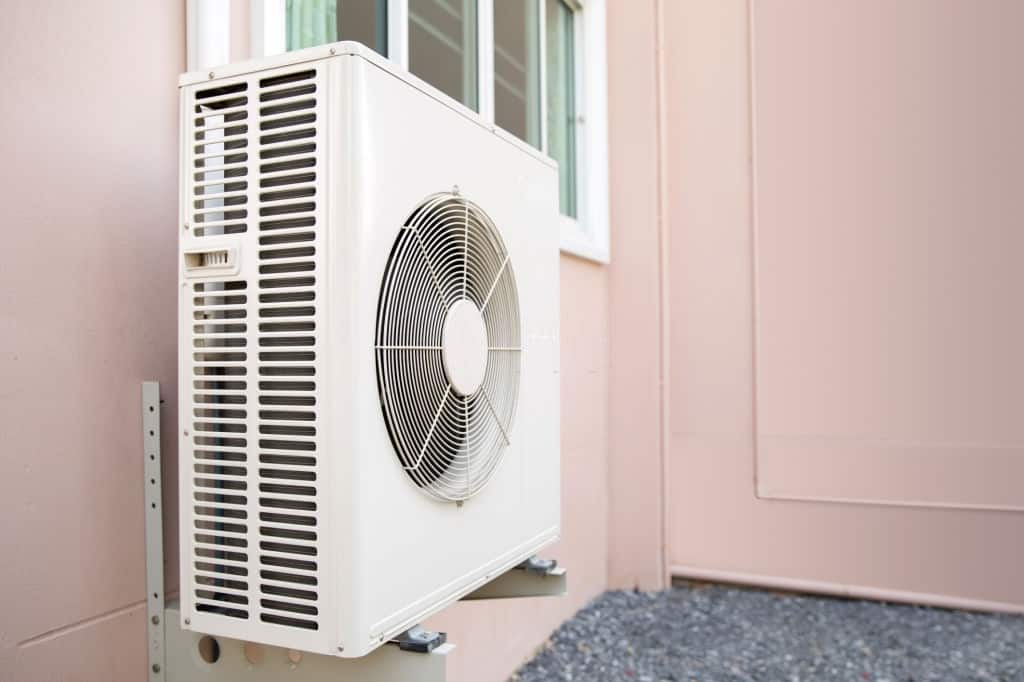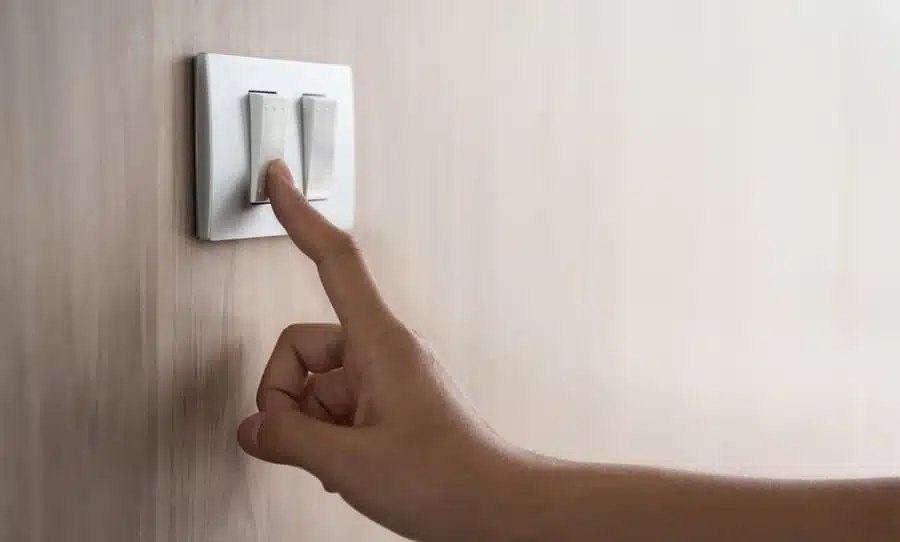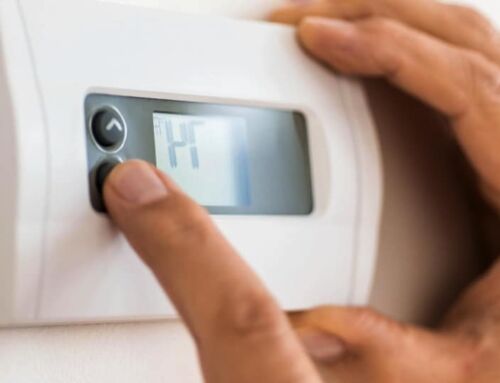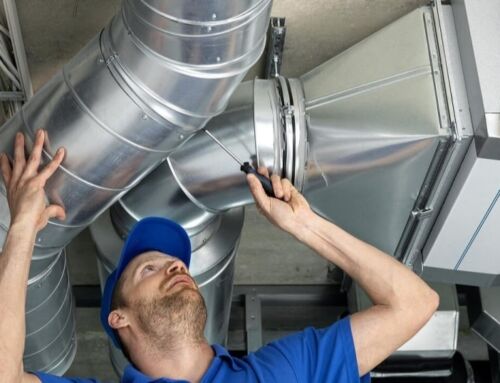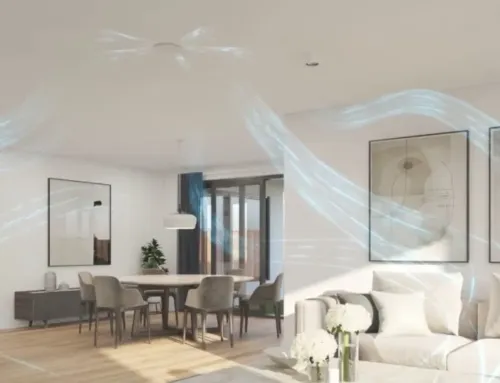The weather in Sydney is harsh. Summers are sweltering and winters can get quite cold – not to mention that many older homes aren’t built for the cold weather.
Air con is very popular in Sydney, in fact, roughly 2 in 3 homes in Sydney have air con installed. However, this means that many residents have to face an ongoing battle with energy bills and that’s why it’s important to learn how to make your home energy efficient.
How to make your home energy efficient when using your AC system
A high-quality air con unit is the perfect way to create a comfortable climate in your home. But, with the increased use of energy-consuming appliances, comes bigger bills.
Did you know that there are several things that you can do to save money on your air con bill? Check out some of our favourite tips and tricks below to help you save energy and money when using your AC.
Choose the right AC system
The first step to getting the best bang for your buck with your AC system is picking the right one! It is important to select a system that suits your needs and is not unnecessarily costly. You can check out our handy guide to selecting the right AC system here.
Check the energy rating
Air conditioners vary when it comes to energy consumption, so make sure to do your research before purchasing. Aircon units are included in the Energy Rating System, which rates products from one to six depending on their energy efficiency.
Maintain your thermostat
It is always a good idea to learn how to use your thermostat properly and in a way which saves you money.
It is far more energy-efficient, and therefore, economical to set the thermostat at a comfortable, mid-range temperature rather than pumping it up high as soon as you feel hot.
Allowing the system to steadily decrease the temperature uses less energy and places less of a strain on your air conditioner system. As a result, you’ll end up with some extra dollars in your pocket.
Use a fan
People often forget just how energy efficient fans are. Not only are they cheap to run, but they also produce the lowest greenhouse gas emissions out of all cooling products and reduce the temperature of a room by as much as three degrees.
If you can handle the climate without the AC on, a fan is the way to go.
Look after the refrigerant
The refrigerant in your air conditioner is important in allowing your AC system to run smoothly and effectively.
If the refrigerant is not properly charged, it can damage the compressor and trigger an expensive repair. This can also increase your energy use as the system is not operating at optimum efficiency.
If you notice that the vents are discharging room temperature air, even after the system has been running for at least fifteen minutes, you may need your refrigerant charging.
If that doesn’t seem to be the problem with your unit, you may also need a top-up if the system has had a leak.
Clean the coils
The condenser coils on the outside units can easily become clogged up with dirt, dust and other debris which make your AC unit work harder to pump out cool air, increasing energy consumption and making your bill extra pricey.
It is well worth checking if there is any dirt or garden debris clogging up the coils to improve airflow and help the system operate more efficiently. If you find that the coils are clogged, be sure to clean them as soon as possible.
Clean and replace filters
Similarly to the coils of an Ac unit, filters can become clogged with dirt and debris. While filtering these particles from the system is the primary function of this component, a dirty filter becomes almost useless and can force the system to work harder to maintain the temperature.
Most manufacturers recommend that filters are changed every four to eight weeks. However, you may be able to extend the lifespan of your filters by cleaning them.
Taking out the filter and removing any lint and other large debris as regularly as possible will not only increase the life of your filters but will also make your AC as energy-efficient as possible.
How to Save Energy When Gaming
Gaming consoles have become a standard fixture in most households and can provide hours of fun and entertainment, but they can use up more energy than you’d expect.
The cost of gaming is roughly four times what it was in the ‘90s. As gaming and technology has improved, the amount of energy necessary to power gaming consoles has increased.
Making some small changes to your gaming habits can help you cut your electricity bill and make your household more energy-efficient.
Many of the fundamental features of modern gaming consoles can use a lot of electricity, but there are some small changes you can make to actively reduce your energy consumption when gaming.
Turn Off the Console When You’re Not Using it
The majority of gaming consoles will usually go into ‘standby’ or ‘sleep mode’ when you’re not using them. This reduces power usage but it doesn’t stop it entirely, as the console is still drawing power to remain in sleep mode.
To stop drawing power completely, you should turn off the power at the console or at the wall switch when you’re no longer using it.
Activate Power Saving Settings
Many gaming consoles now have power saving settings to help reduce how much energy they use even while you’re still gaming.
For example, Xbox One comes set-up to listen for the “Xbox on” command to turn it on, but you can disable this feature by configuring the ‘energy saving’ power mode, this can drop the standby power use by 98 per cent.
Check out your console’s instruction manual to see what energy saving options you could be using.
Don’t Use Game Consoles to Stream
If you’re about to binge-watch your favourite Netflix shows through your gaming console, it may be a better idea to use a digital media player such as Apple TV or Google Chrome, these can use up to 15 times less energy.
Use a Monitor with a High Energy Rating
If you’re shopping for a new TV or specialised gaming monitor, try and opt for one with a five-star energy rating. LED screens or OLED TV’s are considered to be the most energy efficient. Smaller, energy-efficient monitors also use up far less electricity than larger screens.
Track your energy usage
You can identify which areas of your home or appliances are using up the most electricity by conducting a home energy audit. This will thoroughly assess your home and show you where you should make changes or upgrades to faulty or high-energy draining appliances to make your home more energy-efficient.
BONUS Tips to save money on your air con bill
There are a number of things you can do to learn how to make your home energy efficient. Some are cheap, some more expensive, some are suitable if you’re renting, some are only possible if you own your home. Let’s take a look!
Use Light Coloured Paint Inside
Paint your walls with a light paint (such as white or cream). This will help reflect sunlight inside, making rooms feel well-lit and reducing the need to use lights.
Insulate Flooring
There are a number of options for flooring insulation. What you choose will depend on what kind of home you have and how much you want to spend.
If you can access underneath your floors, you may be able to pack insulation (such as foam) between the joists. This is a fairly affordable option.
Another option is to install insulation between the floor base and the floorboards or carpet. If you have an attic space that you can access, consider adding insulation here too.
Seal Your Windows
A lot of heat is lost through windows, often through small cracks and gaps. Sealing these is a cheap and effective way to save energy.
Use Door Snakes
A lot of heat is also lost underneath doors. Door snakes are cheap and a really great way to stop the passage of air between rooms and indoors/outside. Grab yourself a few and use them where necessary.
Change Your Lightbulbs
Energy efficient light bulbs are a slightly larger investment when you buy them, but they will save you money in the long run. Halogen bulbs, compact fluorescent lamps (CFLs) and LEDs are all better options than incandescent bulbs.
Switch off Power When It Is Not In Use
Chargers for mobile phones and computers, lamps, televisions and appliances – all of these consume energy even they are not in use. It’s not much, but for a big home it can to amount to a fair portion of your energy bill. Switch off power when not in use.
Wash Your Clothes With Cold Water
Using warm water to wash your clothes can consume a significant amount of energy. Always use cold water unless necessary.
Take Showers Not Baths
A large portion of the energy used by households is for heating the water used for bathing and showering.
Showering uses significantly less water than bathing, and is a far more energy efficient option.
When you do take a shower, keep it short. On a similar note, try and limit all running hot water, such as when you are brushing your teeth, cleaning your face or wet shaving.
Close Your Doors
If you have a large house, it is important to consider “zoning” – closing doors where possible to trap in heat or coolness. If you have a door that leads to a garage or laundry, keep it closed!
Turn off Your Lights
Turn off lights whenever they are not in use.
Dry Clothes Naturally Instead of Using a Dryer
Even in winter, sun drying clothes is fine, even if it takes a little longer. Avoid using your dryer where possible.
Close Curtain on Hot Days
Closing curtains on hot days can help keep out sunlight and trap in cool air.
Buy Energy Efficient Appliances
All modern appliances have an energy star rating displayed on the front. Buy the most efficient one you can afford – the more stars the better. If you want to know more about how this system works, check out our guide here.
Keep Your Air Con Unit In Top Condition
Regularly maintaining your AC system will help ensure it is running at maximum efficiency.
Contact HunterCON today!
If you follow these handy tips, you’ll be sure to save money on your electricity bills and feel comfortable in your home all year long.
If you have any questions about getting the most out of your air conditioner or are looking for a quote for electrical installations, repairs, or general maintenance, please do not hesitate to get in touch with HunterCON today.
With over nine years of experience under our belt, we pride ourselves on providing air-con and electrical services of the highest quality. Get in touch with us today.


